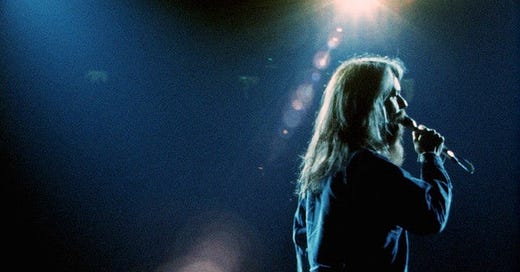Les Blank’s ‘A Poem is a Naked Person’ is a Sublime Cinematic Poem

The subjects of Les Blank’s interest were as consistent as they were surprisingly diverse and specific: food, music, community and the rituals and revelries that not only make life enjoyable, but at times intoxicating. This was made clear by the near-comprehensive vision of his career made available in last year’s box set by Criterion. When Blank focuse…
Keep reading with a 7-day free trial
Subscribe to Nonfics to keep reading this post and get 7 days of free access to the full post archives.



